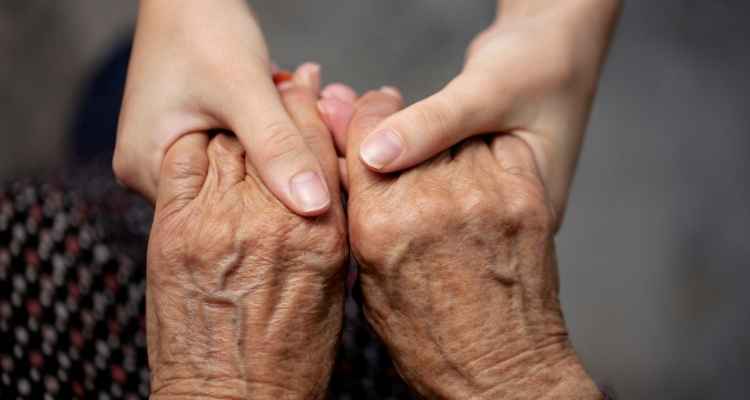Navigating elderly care during the pandemic is no easy task.
Denver, Colorado resident Cooper Holmes, 36, is juggling an extremely busy and unusual schedule. While Holmes’ wife works full-time, he is the primary caregiver to their 3-year-old daughter, works a minimum of four hours per day tending to his mother’s farm and 50 sheep, and runs errands for his elderly mother. On top of all that, Friday through Sunday, Holmes works part-time at a grocery store.
“Millennials, age 24 to 39, graduated from college just as the Great Recession of 2007-09 was upending the economy, setting back their careers and salaries,” USA Today writes. “Now, as a result of the COVID-19 pandemic, they’re suddenly becoming the largest contingent of the ‘sandwich generation,’ the cohort of adults providing financial and other support to both children and elderly parents.”
Just one-quarter of Millennials acted as family caregivers in 2015, and now that number is closer to 40%.
No matter what generation you belong to, caring for elderly parents during the pandemic presents unique challenges. Here are the best tips to overcome these hardships and provide the very best care for mom or dad.
Take Care Of You
First and foremost, take care of you. “Caregivers are more likely to have a chronic illness than are non-caregivers, namely high cholesterol, high blood pressure, and a tendency to be overweight,” the Family Caregiver Alliance (FCA) reveals. Generally speaking, caregivers are at risk of neglecting their physical health. Plus, they are more prone to sleep deprivation, depression, and substance abuse.
Prioritize your health. Do it for you, and do it for your elderly parent or parents. Staying healthy will make you a better caregiver.
To start:
- Take precautions against COVID-19. Maintain social distancing, wear a mask when out in public, and wash your hands often and thoroughly. Use antibacterial soap and wash for an absolute minimum of 20 seconds. Avoid touching your face.
- Keep your “bubble” small. Sometimes, it is impractical to avoid seeing other people altogether, especially when it comes to work. The more you can limit your exposure to the virus, the more you limit your elderly parent’s exposure as well. The British Broadcasting Corporation (BBC) suggests keeping social bubbles to no more than eight people. Visit outside if at all possible. Limit all other in-person visits, and avoid large gatherings.
- Follow your own advice. More likely than not, you are advising your elderly parent to get plenty of sleep and to stay active. Get eight hours of sleep per night, and follow the Centers for Disease Control and Prevention’s (CDC’s) guidelines for physical activity. That includes 150 minutes of moderate exercise per week and two days devoted to muscle-strengthening activities.
Maintain Social Distancing
Instead of avoiding social interactions altogether, think about modifying them from time to time. For example, it is considered generally safe to speak to others at a distance. It is okay for your elderly parents to speak to neighbors while staying a minimum of six feet apart and wearing masks.
Even a quick, distanced interaction with a mail carrier can do wonders for your parent’s mental health. These brief, distanced meetings instill a sense of normalcy — something we all need right now.
Take Precautions
To limit exposure, take precautions. Avoid non-essential travel, and ask your parent’s primary care doctor if telemedicine is an option for some of their medical appointments. Show elderly parents how to use smartphones and video chat. Encourage friends and family to call, write, and drop off care packages to let them know people are thinking about them.
Have a Plan
What will you do if you or your loved one is exposed? What if there is an unrelated emergency? Have a plan, and keep your elderly parent in the loop.
“Gather one to three months of medications, and at least two weeks’ worth of food, over-the-counter remedies, pet supplies, and other essentials,” John Hopkins Medicine recommends. Talk to Mom or Dad about who their emergency contact will be if you are unavailable.
If you or your elderly parent are exposed to the virus, call a healthcare provider and calmly explain the situation and describe your symptoms. Follow their advice about what to do next.
Right now and for the foreseeable future, things are uncertain. Your approach to elder care doesn’t have to be. Follow the guidelines above to keep your care consistent, compassionate, and safe.

